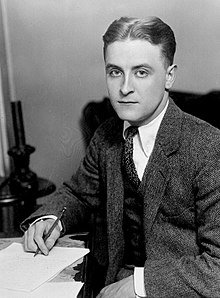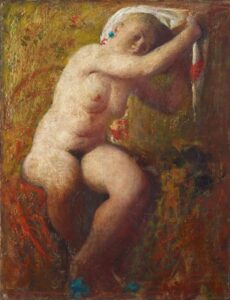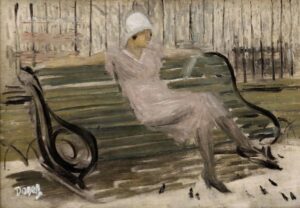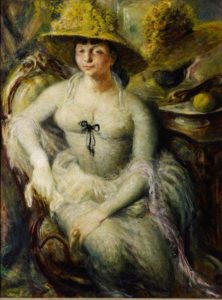Dear Zazie, Here is today’s Lovers’ Chronicle from Mac Tag dedicated to his muse. Follow us on twitter @cowboycoleridge. Is there someone you long to see again? Rhett
The Lovers’ Chronicle
Dear Muse,
© copyright 2020 mac tag/cowboy coleridge all rights reserved
remembrance says
the dreams, yet still
since time, stolen
away these many years,
leavin’ my temples gray
to see those eyes again
i can a sad and sweet
tortured feelin’ have,
and say, il mio cuore felice
© Copyright 2019 Mac tag/cowboy Coleridge all rights reserved
survived a dance
with madness
through providence
or happenstance
always driven by a yearnin’
for a connection to somethin’
sure woulda avoided many
ill advised decisions
had the attachment
that was meant for me,
been known way back when
or
was the whole damn
mixed up, one wrong turn
after another journey,
a necessary part
of findin’ my purpose
whichever
just thankful
to be here with you
© copyright 2018 mac tag/cowboy coleridge all rights reserved
movin’ slowly out of the bay
that which needs be left behind
grows smaller in the distance
an ocean opens ahead
an immense, solemn,
welcome repose
one evenin’, in my cabin,
my eyes fall upon the roses
brought from the garden
they had lasted several days,
but now they are withered,
strewn sadly upon the floor
i try hard, without success,
to awaken some sentiment
for the last souvenirs
of my summer
i pick them up
and open the porthole
from the gray misty sky,
a gloomy twilight descends
i throw the roses
into the boundless waters,
consignin’ them to a grave,
solemn and vast
an appeal,
to whatever powers may be
wash me clean
from the errors of the past
in the waters of always
© copyright 2017 mac tag/cowboy Coleridge all rights reserved
Seein’ You Again
When last we parted, I was young
You were so lovely my remembrance says
Sadly, since then time has stolen away
These many years, leavin’ my temples gray
So has it perished, like a thing of air,
That dream of love and youth
Yet still rememberin’ youth’s enchanted way,
Though time has changed my look,
Though I remember the pain of our partin’,
And never thought, long as I yet might live,
And parted so long, to see those eyes again;
I can a sad, and sweet tortured feelin’ have,
And say, il mio cuore felice
As when I loved you when I was young!
© copyright 2012 mac tag/Cowboy Coleridge all rights reserved
The Song of the Day is “Seeing You Again” by Dan Fogelberg
If I could see you again. Il mio cuore felice; literally, my heart happy. It was when I was with you. It would be if I could see you again.
| F. Scott Fitzgerald | |
|---|---|

Fitzgerald c. 1921, appearing in The
World’s Work‘s June 1921 issue |
|
Today is the birthday of F. Scott Fitzgerald (Francis Scott Key Fitzgerald; St. Paul, Minnesota; September 24, 1896 – December 21, 1940 Hollywood); novelist and short story writer, whose works are the paradigmatic writings of the Jazz Age. In my opinion, one of the greatest American writers of the 20th century. Fitzgerald is considered a member of the “Lost Generation” of the 1920s. He finished four novels: This Side of Paradise, The Beautiful and Damned, The Great Gatsby, and Tender Is the Night. A fifth, unfinished novel, The Love of the Last Tycoon, was published posthumously. Fitzgerald also wrote numerous short stories, many of which treat themes of youth and promise, and age and despair.
Fitzgerald was commissioned a second lieutenant in the infantry and assigned to Camp Sheridan outside of Montgomery, Alabama. While at a country club, Fitzgerald met and fell in love with Zelda Sayre (1900–1948), the daughter of Alabama Supreme Court justice Anthony D. Sayre and the “golden girl,” in Fitzgerald’s terms, of Montgomery youth society. The war ended in 1918, before Fitzgerald was ever deployed, and upon his discharge he moved to New York City hoping to launch a career in advertising that would be lucrative enough to convince Zelda to marry him. He worked for the Barron Collier advertising agency, living in a single room at 200 Claremont Avenue in the Morningside Heights neighborhood on Manhattan’s west side.
Zelda accepted his marriage proposal, but after some time and despite working at an advertising firm and writing short stories, he was unable to convince her that he would be able to support her, leading her to break off the engagement. Fitzgerald returned to his parents’ house at 599 Summit Avenue, on Cathedral Hill, in St. Paul, to revise The Romantic Egoist, recast as This Side of Paradise, a semi-autobiographical account of Fitzgerald’s undergraduate years at Princeton. His revised novel was accepted by Scribner’s in the fall of 1919 and was published on March 26, 1920 and became an instant success, selling 41,075 copies in the first year. It launched Fitzgerald’s career as a writer and provided a steady income suitable to Zelda’s needs. They resumed their engagement and were married at St. Patrick’s Cathedral, New York.
Scott and Zelda quickly became celebrities of New York, as much for their wild behavior, as for the success of This Side of Paradise. They were ordered to leave both the Biltmore Hotel and the Commodore Hotel for their drunkenness. Zelda once jumped into the fountain at Union Square. Another example of their behavior was when Dorothy Parker first met them, as Zelda and Scott were sitting atop a taxi. Parker said, “They did both look as though they had just stepped out of the sun; their youth was striking. Everyone wanted to meet him.” Their social life was fueled with alcohol. Publicly, this meant little more than napping when they arrived at parties, but privately it increasingly led to bitter fights. To their delight, in the pages of the New York newspapers Zelda and Scott had become icons of youth and success—enfants terribles of the Jazz Age.
Verse
This Side of Paradise (1920)
- Faint winds, and far away a fading laughter…
And the rain and over the fields a voice calling…
- The shadow of a dove
Falls on the cote, the trees are filled with wings;
And down the valley through the crying trees
The body of the darker storm flies; brings
With its new air the breath of sunken seas
And slender tenuous thunder . . .
But I wait . . .
Wait for the mists and for the blacker rain —
Heavier winds that stir the veil of fate,
Happier winds that pile her hair;
Again
They tear me, teach me, strew the heavy air
Upon me, winds that I know, and storm.
| William Dobell | |
|---|---|

William Dobell, 1942, photograph by Max Dupain
|
|
Today is the birthday of William (Bill) Dobell (Cooks HIll, Colony of New South Wales 24 September 1899 – 13 May 1970 Wangi Wangi, New South Wales, Australia); portrait and landscape artist of the 20th century. Dobell won the Archibald Prize, Australia’s premier award for portrait artists on three separate occasions. The Dobell Prize is named in his honour.
Dobell was a very private man, known almost always as ‘Bill’ and never as ‘William’ or ‘Sir William’. He died on 13 May 1970 in the Lake Macquarie suburb of Wangi Wangi of hypertensive heart disease. The sole beneficiary of his estate was the Sir William Dobell Art Foundation, which was founded on 19 January 1971 and awards the Dobell Australian Drawing Biennial, which is named in his honour. He was cremated with Anglican rites.
A film of Dobell’s life, titled Yours sincerely, Bill Dobell was made in 1981 by Brian Adams and Cathy Shirley for the Australian Broadcasting Commission and the William Dobell Art Foundation. Brian Adams’ book Portrait of an Artist – A biography of William Dobell was first published in 1983 by Hutchinson Publishing Group and revised in paperback in 1992 for Random House Australia.
A book on the life and art of William Dobell, William Dobell: An Artist’s Life by Elizabeth Donaldson, was compiled in 2010 with the support of the Sir William Dobell Art Foundation and Dobell House, in Wangi Wangi. It is published by Exisle Publishing.
Gallery

Seated nude

Woman with sparrows

portrait of Margaret Olley
Mac Tag

No Comments on "The Lovers’ Chronicle 24 September – absolution – seein’ you again – verse by F. Scott Fitzgerald – art by William Dobell"